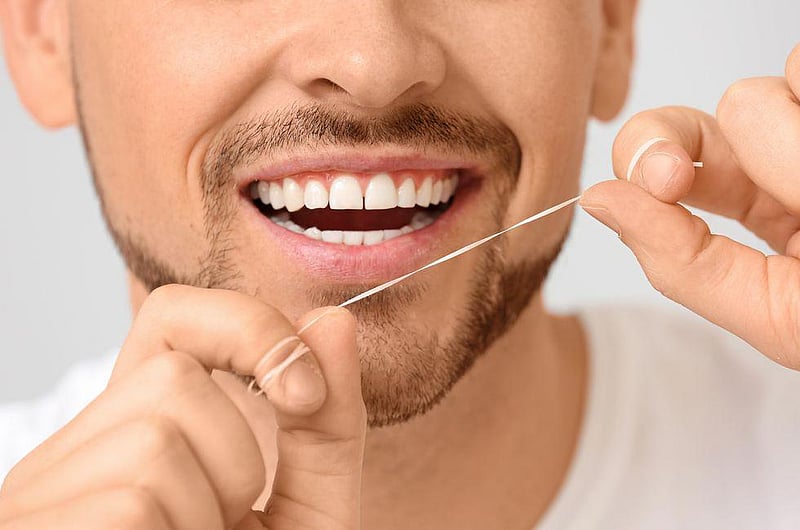Get Healthy!
214 Results for search "Heart / Stroke-Related: Heart Attack".
Health News Results - 214
Younger women who undergo radiation for cancer in the left breast have a heightened risk of heart disease years later, a new study finds.
Among women who received radiation therapy for left-sided breast cancer, 10.5% developed coronary artery disease over the next 27 years, researchers found. That was close to double the rate among women who had radiation for tumors in the right breast.
- HealthDay Reporter
- Amy Norton
- |
- September 22, 2021
- |
- Full Page
A year of exercise training helped to preserve or increase the youthful elasticity of the heart muscle among people showing early signs of heart failure, a small study shows.
The new research, published Sept. 20 in the American Heart Association journal Circulation, bolsters the idea that "exercise is medicine," an important shift in approach, the researchers wrote.
The stu...
- American Heart Association News
- |
- September 21, 2021
- |
- Full Page
If the Alps or the Rockies are on your bucket list, check with your doctor first if you're at risk for cardiovascular disease.
New advice from the American Heart Association (AHA) suggests certain people take precautions before going to high altitude places.
These recommendations apply to folks with high blood pressure, coronary artery disease, heart rhythm abnormalities (arrhy...
- HealthDay Reporter
- Steven Reinberg
- |
- September 10, 2021
- |
- Full Page
Marijuana has been linked to a doubling in the risk of a heart attack in younger adults, no matter how they use it, a new study reports.
Eighteen- to 44-year-olds who used pot were twice as likely to have a heart attack compared with non-users, whether they smoked, vaped or ate their weed, researchers found.
"We found it wasn't only smoking that had this kind of effect. The effect s...
- HealthDay Reporter
- |
- September 7, 2021
- |
- Full Page
Feelings of despair and hopelessness can raise the odds of death in people battling heart disease, and new research suggests that where you live, as well as your marital status, can also play a role.
The study found that heart disease patients who lived in rural areas and were unmarried were more likely to feel hopeless.
"Because we know hopelessness is predictive of death in p...
- HealthDay Reporter
- Ernie Mundell and Robert Preidt
- |
- September 1, 2021
- |
- Full Page
Along with other dangers, the aftermath of Hurricane Ida could pose significant heart health risks.
Stress and trauma from the storm that slammed into Louisiana, Mississippi, Alabama and other states could increase heart risk, and the impact may be more significant for heart disease and stroke patients, the American Heart Association (AHA) warns.
For example, it may be more difficul...
- HealthDay Reporter
- Robert Preidt
- |
- August 31, 2021
- |
- Full Page
The latest buzz on coffee? It may be good for your heart, a new, large study suggests.
Drinking light to moderate amounts -- up to three cups a day -- may lower the risk of stroke, fatal heart disease and all-cause death, researchers found.
"Regular coffee consumption of up to three cups per day is associated with a lower risk of all-cause mortality, cardiovascular mortality and str...
- HealthDay Reporter
- Steven Reinberg
- |
- August 30, 2021
- |
- Full Page
The greener your neighborhood, the lower your risk of heart disease.
That's the takeaway from a new study, which reported that adding to a neighborhood's green space can have a big payoff for public health.
"For the cost of one emergency room visit for a heart attack, trees could be planted in a neighborhood with 100 residents and potentially prevent ten heart diseases," said study ...
- HealthDay Reporter
- Robert Preidt
- |
- August 30, 2021
- |
- Full Page
Heart attack survivors could gain more than seven healthy years of life if they take the right medications and improve their lifestyle, new research estimates.
Unfortunately, studies have found, heart attack survivors rarely get optimal control over their risk factors.
The new research echoes that evidence: Of more than 3,200 patients, only 2% had their blood pressure, cholesterol a...
- HealthDay Reporter
- Amy Norton
- |
- August 27, 2021
- |
- Full Page
New research offers further evidence of a link between gum disease and heart disease.
The ongoing Swedish study previously found that gum disease ("periodontitis") was much more common in first-time heart attack patients than in a group of healthy people.
In this follow-up study, the researchers examined whether gum disease was associated with an increased risk of new heart problems...
- HealthDay Reporter
- Robert Preidt
- |
- August 27, 2021
- |
- Full Page
The arteries of young people who drink stiffen sooner in their lives, which could increase their risk for heart disease and stroke later on, a British study reports.
People's arteries naturally become less elastic with age, but certain factors -- including alcohol and tobacco use -- can speed up the process. This study included more than 1,600 people in the United Kingdom. Their alcohol u...
- HealthDay Reporter
- Robert Preidt
- |
- August 24, 2021
- |
- Full Page
Roaring, fast-moving blazes. Choking smoke. Fiery tornados. Thunderstorms and lightning.
The Dixie Fire -- now the single largest wildfire in California history -- continues to spread, having burned through more than 750 square miles of forest land north of Sacramento.
The astonishing spread of smoke from the fire, causing discomfort and illness to people hundreds or thousands of mi...
- HealthDay Reporter
- Dennis Thompson
- |
- August 11, 2021
- |
- Full Page
In a study conducted in Scandinavia, loss of height among middle-aged women was linked to an increased risk of early death from heart attack and stroke, researchers report.
Some loss of height goes along with aging, and previous studies have suggested it may boost the odds of death from heart disease.
While women tend to shrink more than men with age, height loss in women has not be...
- HealthDay Reporter
- Robert Preidt
- |
- August 11, 2021
- |
- Full Page
Smoke from wildfires burning along the West Coast is choking the entire United States, reminding everyone of the hazards of climate change.
But that haze isn't just stinging your eyes and choking your breath -- it poses a direct threat to your health, experts say.
Wildfire smoke has been shown to increase risk of heart attacks and strokes, as well as lung ailments like asthma, Ameri...
- HealthDay Reporter
- Dennis Thompson
- |
- August 9, 2021
- |
- Full Page














